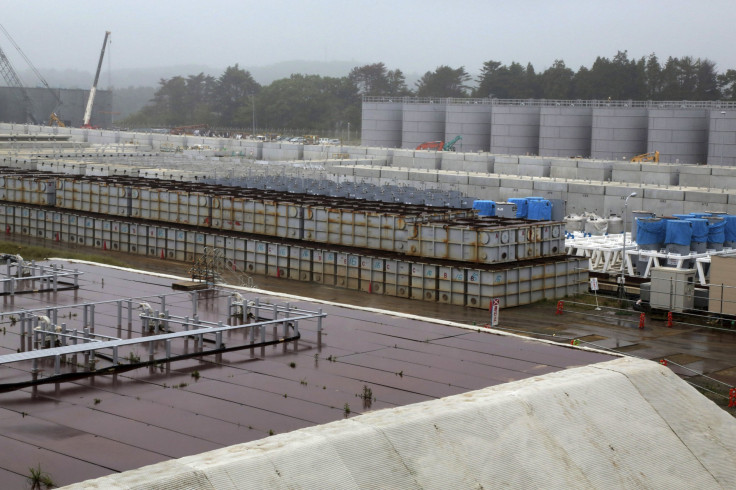Fukushima Radioactive Water Leak: Construction Of Giant Water Tanks At Nuclear Plant Involved Illegal Labor, Substandard Work
Japan To Establish UK-Style Decommissioning Agency

Storage tanks at Japan’s tsunami-crippled Fukushima nuclear power plant, which leaked gallons of radioactive water this year, were built with illegal labor and involved substandard work, a Reuters report said on Friday.
The report underlines concerns about the ability of Tepco, the plant’s beleaguered operator, to safely handle the crisis, even as the government is considering setting up a British-style agency to manage the decommissioning process. Tokyo Electric Power, or Tepco, the plant’s operator has been widely criticized for its mismanagement of the crisis at the nuclear power plant, which was hit by a giant tsunami triggered by an earthquake in March 2011 that ravaged the facility and damaged its back-up generators and cooling system leading to a meltdown of its reactors.
"Yes, we did a shoddy job," one of the workers, who did want to be named, told Reuters. "The quality of what we did was low, but what else would you expect," the worker said. "We had to race to finish up the tanks."
Since the catastrophe, the power plant has witnessed a multitude of problems, ranging from radioactive water leaks from its storage tanks to smoke and steam outbreaks in its melted reactor buildings, and Tepco’s measures to combat the crisis have not yielded much success. And, the latest media report, which claims Tepco's work on the damaged plant was haphazard and substandard, further dents Tepco’s image.
According to the Reuters report, citing labor regulators and those involved in the repair work, thousands of workers were recruited across Japan to help in the repair and reconstruction work at the site, and many of these workers were inexperienced, illegally hired, and poorly supervised by subcontractors, without the knowledge of Tepco, the report said.
Tepco had to install thousands of giant water tanks to store the millions of gallons of contaminated seawater that cooled and stabilized the melted reactor cores. Tepco awarded the work contract to construction firm, Taisei Corp.(TYO:1801), which in turn hired Toyo Engineering Corp., or TEC.
However, TEC reportedly employed Token Kogyo, an unregistered broker, to bring in workers for building these tanks. The use of laborers hired by a third-party or unregistered contractor is illegal according to Japanese law.
"Even if we didn't agree with how things were being done, we had to keep quiet and work fast," Yoshitatsu Uechi, a mechanic and former bus driver, who was recruited from Okinawa by Kogyo and sent to Fukushima, told Reuters.
Uechi told Reuters that he complained to the regulators about the substandard work, lack of supervision and poor working conditions at Fukushima, adding that workers were made to seal the leakage in water tanks even when it was snowing and raining.
"It didn't make any sense because the caulking wouldn't get to the metal, it would float out," Uechi said.
In September, labor regulators penalized Kogyo after Uechi complained, but the order was not made public.
A UK-Style Decommissioning Agency
Meanwhile, the Japanese government is considering the creation of a agency -- modeled on Britain’s National Decommissioning Authority -- to oversee the decommissioning process at Fukushima.
"It is likely that the government will eventually have to take responsibility" for the decommissioning, Tadamori Oshima, head of the Liberal Democratic Party's task force on disaster reconstruction, told Reuters.
Although Tepco is responsible for the decommissioning process, the government believes that a public body should manage the utility. However, setting up a decommissioning agency for managing Fukushima would involve using huge amounts of taxpayers’ money, and hence could face severe opposition.
Japan’s government has so far pledged half a billion dollars for the decommissioning and clean-up of the Fukushima plant.
© Copyright IBTimes 2024. All rights reserved.





















